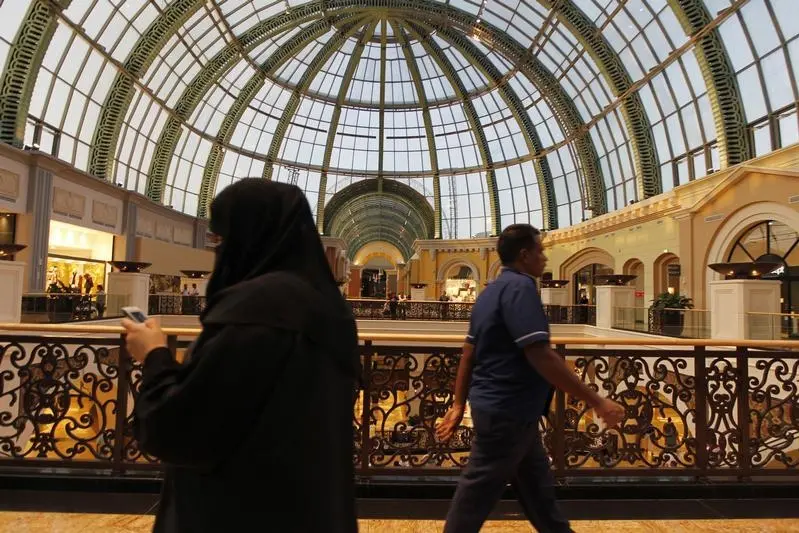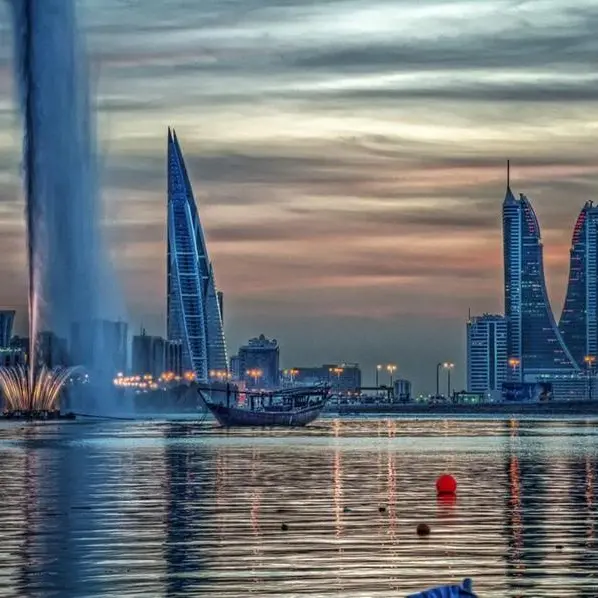PHOTO
LONDON: Dubai’s world-famous malls are getting ready for the festive rush, but this year they face stiffer competition from online rivals.
Bargain-hunting shoppers across the region are increasingly turning to the Web in a market where the vast air-conditioned mall has long been the heart and soul of the retail trade.
The glittering decorations and lights that drape the region’s biggest shopping centers may be projecting a festive mood — but inside the boardrooms of big retailers the atmosphere is more subdued as the industry tries to respond to the online onslaught.
Amid austerity, the removal of subsidies and faltering economic growth, disposable income has come under pressure for many families across the Gulf — encouraging more people to seek out better value through Web shopping.
“Growth in Internet retailing is disrupting traditional retail practices for malls and bricks and mortar players, resulting in greater efforts to drive footfall through enhancing innovation and increasing sales events across the year,” said Euromonitor analyst Rabia Yasmeen.
Such promotional events are placing pressure on the costs and margins of store-based retailers as well as mall operators in the country, she added.
The biggest new arrival to regional online retailing is Noon.com which launched in October, offering products as diverse as smartphones, clothing and biscuits. Shoppers can make their purchases via an app on their smartphones; the site went live in Saudi Arabia on Tuesday.
The company is a joint venture between Emaar Properties Chairman Mohamed Alabbar, Saudi Arabia’s Public Investment Fund and the Kuwaiti franchise operator MH Alshaya.
Noon was presented as the region’s first Arabic e-commerce platform. Alabbar also acquired, via a fund, the UAE online retailer JadoPado in May this year.
The arrival of Noon followed Amazon’s acquisition of the Dubai-based online platform Souq.com in March, a move that suggests the US-based company sees growth opportunities in the UAE and wider Gulf region’s online shopping sector.
Amazon’s faith in the potential of the Middle East’s online market is echoed by many analysts.
According to BMI Research, the UAE and the wider Middle East e-commerce market holds “tremendous” growth potential.
It forecasted that the Middle East will be the fastest-growing region globally for e-commerce, with sales likely to double to reach $48.8 billion by 2021, according to a note in September.
The UAE dominates the regional online shopping market, said BMI Research, with sales forecast to hit $9.7 billion in 2017. The consultancy predicted e-commerce sales in the UAE will reach $23.3 billion by 2021, recording an average annual growth of more than 25 percent.
Low prices are one of the main motivating factors for buying online, found a PwC report published earlier this year.
According to the consultancy firm’s survey, 40 percent of those questioned in the region stated they were attracted by lower pricing, while 31 percent cited product selection as a factor and just 17 percent saw online as more convenient.
It is becoming an increasingly competitive market, said Yasmeen.
“Online shopping events such as White Friday sales and increased online competition was a key driver to push prices lower on online platforms in the UAE, leading to online being an important avenue for purchases during the year,” she said.
While opportunities to shop online have increased this year, the allure of the shopping malls — complete with cafes, cinemas, ski slopes and aquariums, as in Dubai, is likely to persist, according to analysts.
Online retail currently has just a 3 percent share of the UAE’s total retail market, lagging far behind Europe and the US where retail accounts for 15-20 percent of total retail sales.
Most UAE residents are still more likely to head to the mall to buy their festive presents this year, research from price comparison website Yallacompare found.
Around 84 percent of respondents said they do their festive shopping in malls or other physical retail stores, according to its survey conducted in November.
One of the challenges Middle East online retailers will face in winning over more customers will be improving their distribution capabilities, according to BMI Research.
Online retailers will need to offer next-day or even same-day delivery and currently — outside of the UAE — this is not always possible due to the lack of required infrastructure and high costs involved, the company said in a research note.
“Malls are still the key retail format in the country,” said Yasmeen. At least for now.
The glittering decorations and lights that drape the region’s biggest shopping centers may be projecting a festive mood — but inside the boardrooms of big retailers the atmosphere is more subdued as the industry tries to respond to the online onslaught.
Amid austerity, the removal of subsidies and faltering economic growth, disposable income has come under pressure for many families across the Gulf — encouraging more people to seek out better value through Web shopping.
“Growth in Internet retailing is disrupting traditional retail practices for malls and bricks and mortar players, resulting in greater efforts to drive footfall through enhancing innovation and increasing sales events across the year,” said Euromonitor analyst Rabia Yasmeen.
Such promotional events are placing pressure on the costs and margins of store-based retailers as well as mall operators in the country, she added.
The biggest new arrival to regional online retailing is Noon.com which launched in October, offering products as diverse as smartphones, clothing and biscuits. Shoppers can make their purchases via an app on their smartphones; the site went live in Saudi Arabia on Tuesday.
The company is a joint venture between Emaar Properties Chairman Mohamed Alabbar, Saudi Arabia’s Public Investment Fund and the Kuwaiti franchise operator MH Alshaya.
Noon was presented as the region’s first Arabic e-commerce platform. Alabbar also acquired, via a fund, the UAE online retailer JadoPado in May this year.
The arrival of Noon followed Amazon’s acquisition of the Dubai-based online platform Souq.com in March, a move that suggests the US-based company sees growth opportunities in the UAE and wider Gulf region’s online shopping sector.
Amazon’s faith in the potential of the Middle East’s online market is echoed by many analysts.
According to BMI Research, the UAE and the wider Middle East e-commerce market holds “tremendous” growth potential.
It forecasted that the Middle East will be the fastest-growing region globally for e-commerce, with sales likely to double to reach $48.8 billion by 2021, according to a note in September.
The UAE dominates the regional online shopping market, said BMI Research, with sales forecast to hit $9.7 billion in 2017. The consultancy predicted e-commerce sales in the UAE will reach $23.3 billion by 2021, recording an average annual growth of more than 25 percent.
Low prices are one of the main motivating factors for buying online, found a PwC report published earlier this year.
According to the consultancy firm’s survey, 40 percent of those questioned in the region stated they were attracted by lower pricing, while 31 percent cited product selection as a factor and just 17 percent saw online as more convenient.
It is becoming an increasingly competitive market, said Yasmeen.
“Online shopping events such as White Friday sales and increased online competition was a key driver to push prices lower on online platforms in the UAE, leading to online being an important avenue for purchases during the year,” she said.
While opportunities to shop online have increased this year, the allure of the shopping malls — complete with cafes, cinemas, ski slopes and aquariums, as in Dubai, is likely to persist, according to analysts.
Online retail currently has just a 3 percent share of the UAE’s total retail market, lagging far behind Europe and the US where retail accounts for 15-20 percent of total retail sales.
Most UAE residents are still more likely to head to the mall to buy their festive presents this year, research from price comparison website Yallacompare found.
Around 84 percent of respondents said they do their festive shopping in malls or other physical retail stores, according to its survey conducted in November.
One of the challenges Middle East online retailers will face in winning over more customers will be improving their distribution capabilities, according to BMI Research.
Online retailers will need to offer next-day or even same-day delivery and currently — outside of the UAE — this is not always possible due to the lack of required infrastructure and high costs involved, the company said in a research note.
“Malls are still the key retail format in the country,” said Yasmeen. At least for now.
Copyright: Arab News © 2017 All rights reserved. Provided by SyndiGate Media Inc. (Syndigate.info).





















